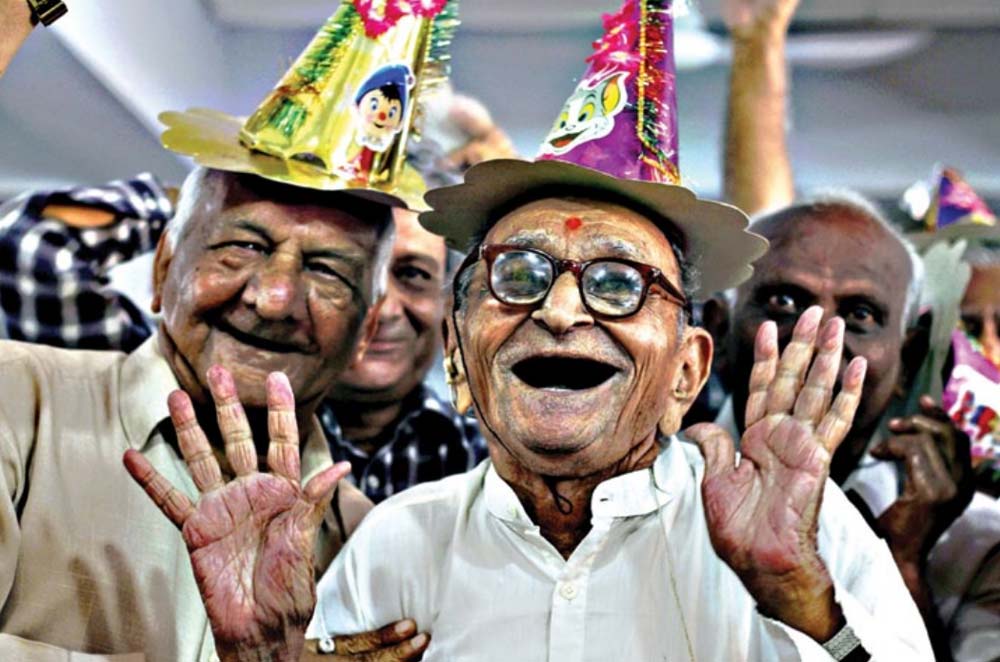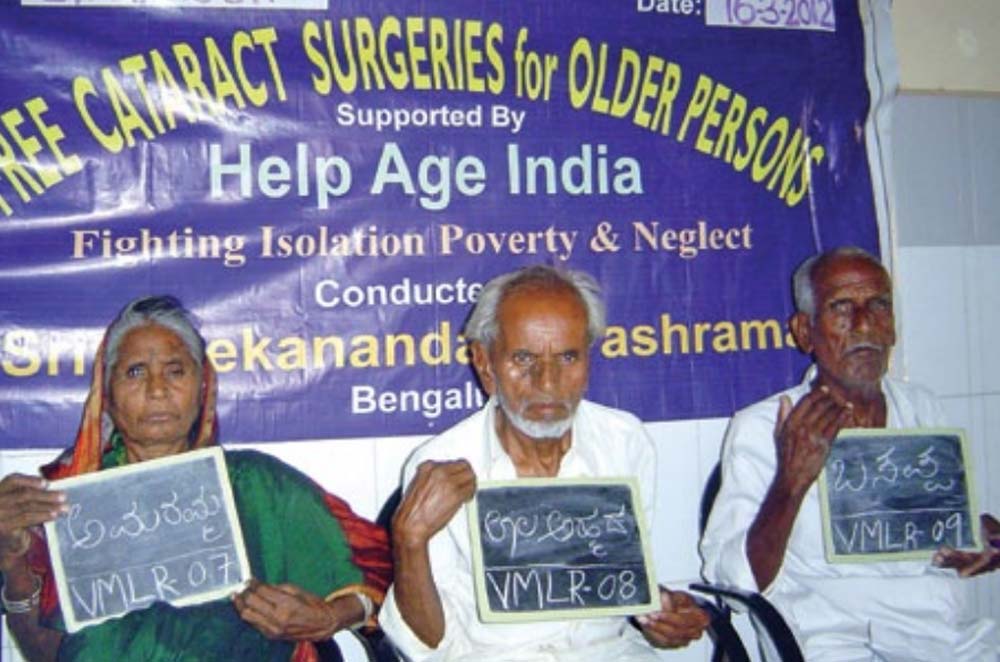- Cover Story
- Governance
- Globe Scan
- Corruption
- State Scan
- Talk Time
- Cover Story
- Governance
- Globe Scan
- Corruption
- State Scan
- Talk Time
Recent Posts
© Copyright 2007 - 2023 Gfiles India. All rights reserved powered by Creative Web INC.GovernanceDemographic bulge ahead!
It is a matter of deep worry that there are no holistic programmes to address the variegated needs of older people and the aged, the fastest growing group in our population
Devender SinghFebruary 9, 20145 Mins read85 Views
 Medical services for senior citizens are in short supplyWritten by Devender Singh
Medical services for senior citizens are in short supplyWritten by Devender SinghINDIA has traditionally enjoyed a robust joint family system taking care of elderly persons. However, the sweeping currents of globalisation and transcending cultures are having their baleful effect on society. With the disintegration of the joint family system, emergence of nuclear families and single parent syndrome, elders are getting increasingly neglected, uncared for and, in many cases, maltreated.
A recent empirical study by Prof. Jean Dreze says, ‘the first thing that struck me was the immense number of elderly people, and their miserable plight….They live quiet and unobtrusive, some passing time on a broken charpoy, others collecting twigs, limping from one place to another, or simply lying ill in the darkness of a shabby back room. They rarely complain, at least, not in public, but if you enquire about their well being, the tales of sorrow are endless.’ Nothing could be more graphic.
The situation will exacerbate with the transition of our youthful demographic curve, what Nandan Nilekani calls India’s demographic dividend, into a gerontological bulge by 2020. The population of senior citizens as a percentage of total population, which stood at 7.5 per cent as per the 2001 census, is likely to increase to 12.4 per cent in 2026 as per the report of the Technical Group constituted by the National Commission on Population. According to UN projections, the overall population in India by the year 2050 will grow by 55 per cent but that of the 60+ people will increase by 326 per cent. More alarmingly, there would be a 700 per cent increase in the 80+age group!

It is a matter of deep worry that there are no holistic programmes to address the variegated needs of older people, the fastest growing group. The problem is especially pathetic in the unorganised sector. A manual worker, a rickshaw puller, a marginal farmer all become so decrepit and emaciated before attaining the sobriquet of senior citizen. They wither before they bloom. It appears that our subsidy regime and direct cash transfer schemes are more likely to create indolence, lethargy and paid unemployment rather than inducing the young and able bodied people to work hard and earn their legitimate wages. Doles, subsidies and financial assistance should be given, more appropriately, to needy senior citizens in a graded scale as they advance in age, get secluded and infirm and are left to fend for themselves by their callous progeny and kith and kin. Paradoxically, the National Policy for Senior Citizens recognises productive ageing as the key to the welfare of senior citizens between the age of 60-70 years.
With increased life expectancy and relatively better state of health of a considerable section of the people, there are suggestions in bureaucratic echelons to have continuity of employment up to 62 years and also greater post retirement opportunities. But any such move should not contribute to unemployment of the young. Attention needs to be accorded to the plight of the poor and underprivileged who are able to cross the threshold of 60 years.
According to UN projections, the overall population in India by the year 2050 will grow by 55 per cent but that of the 60+ people will increase by 326 per cent. More alarmingly, there would be a 700 per cent increase in the 80+ age group
Those in the 80+ age group are highly vulnerable to a whole array of disease and infirmities like dementia, Alzheimer’s disease, Parkinson’s disease, depression, and so on, and they need special care. There is a national policy but for want of standing machinery for procuring coordination, the different ministries work in silos. In order to address upfront, citizens of 80+ years, elderly women, rural poor and the people working in unorganised sector and the specialised healthcare needs of elders, the national policy needs a comprehensive revisit.
THE National Council for Senior Citizens, an apex body, is dysfunctional as it has not met even once, though it is required to meet twice a year. The position of State Level Councils for senior citizens is no better. There is no Directorate of Senior Citizens for over-arching policy formulation and to oversee implementation of welfare measures.
The programmes of old age homes, day care centres and Mobile Medicare Units have grievously suffered due to paltry allocation. There are about 296 old age homes in the country and that too concentrated in a few States. No norms have been prescribed for the manpower and the expertise needed for running old age homes or for construction of old age homes. Panchayati Raj institutions and local bodies seem to be disinclined to run old age homes for lack of financial support.
Mobile Medicare Units (MMUs) can play an effective role in providing the much needed health care to the aged and the infirm in remote and far flung areas but the number of MMUs has gone down from 38 units in 2011-12 to 29 units in 2012. Geriatric daily clinics have been established in 65 district hospitals and geriatric wards established in 53 district hospitals. However, all 640 districts must be equipped with such facilities. Super-speciality hospitals also need to be set up exclusively for geriatric care in different regions. There is also an imperative need for setting up a National Institute of Ageing.

Mobile Eldercare unit A health insurance scheme, on the lines of the Rashtriya Swasthya Bima Yojana , needs to cover senior citizens without any regular source of sustenance. The income tax exemption for senior citizens should be indexed to the cost of living and healthcare. The aged destitute should be given decent monthly pension and free medical care.
The protection of the life and property of the elders is yet another emerging challenge since crimes against them have become rampant, especially in urban areas. The reminiscence of a retired High Court judge, who sought judicial intervention to secure possession of the house built by him from his own son, refuses to fade. There are chilling tales of old age people abandoned by their well placed children! One needs to visit an old age home or a religious sanctuary like Vrindavan to gauge the extent to which our social fabric has ruptured and the fast vanishing filial ties.
Doles, subsidies and financial assistance should be given, more appropriately, to needy senior citizens in a graded scale as they advance in age, get secluded and infirm and are left to fend for themselves by their callous progeny and kith and kin
The Maintenance and Welfare of Parents and Senior Citizens Act, 2007 needs to be enforced stringently, a job to be done by the States. We also need to draw upon the welfare regime of many of the European countries, especially the Scandinavian countries, which provide facilities like home, healthcare and cooked meals to their senior citizens. Welfare programmes can be so integrated that elders in old age homes/service apartments are able to interact and educate children in orphanages or schools with some unobtrusive vigil.
Apart from programmatic interventions, the rich cultural heritage of India needs to be widely disseminated. Elders have been held in high esteem from time immemorial. The bard of Mahabharata (in the Shanti Parva) could not conceive of an Assembly without the participation of the elders. The Scriptures refer to the four-fold benefits that accrue from the service of the aged. The aged must get proper access to food, shelter, the much needed healthcare, dignity and safety in the twilight of their life since the right to live with dignity is part of the fundamental right of life. The poet’s promise to ‘grow old along with me’ as the ‘best is yet to be’ would surely get fructified if the UN Convention on Ageing is implemented with full fidelity.
The author is a senior parliamentary official and a student of constitutional and parliamentary studies. The views expressed here are personal. He can be reached at dsaswal57@gmail.com
Recent Posts
Related Articles
GovernanceNewsBackdoor entry of Private players in Railway Production Units ?
Written by K. SUBRAMANIAN To Shri G C Murmu C&AG Dear Shri Murmu,...
ByK. SUBRAMANIANFebruary 22, 2024GovernanceNailing Labour to The Cross
Written by Vivek Mukherji THEY grease the wheels of India’s economy with their...
ByVivek MukherjiMay 5, 2020GovernanceBig Metal Momentum
Written by GS Sood PRECIOUS metals especially gold and silver are likely to...
ByGS SoodMay 5, 2020GovernanceStrengthening Social Enterprise Ecosystem: Need for systemic support from the Government
Written by Jyotsna Sitling and Bibhu Mishra THE world faces several challenges today....
ByJyotsna Sitling and Bibhu MishraMay 5, 2020 - Governance
- Governance



























































